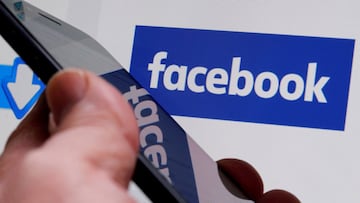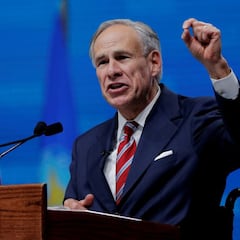Meta: Why is Facebook changing its name and what does Metaverse mean?
Meta, will replace the name of Facebook, the social media giant which owns Instagram and WhatsApp, in addition to its initial platform. Why the change?


Facebook CEO Mark Zuckerberg announced today during a virtual conference that his company would be changing its name to ‘Meta.’ Zuckerberg spoke to the name change saying that it was time for the company “to adopt a new company brand to encompass everything that we do, to reflect who we are and what we hope to build."
The name change comes as Facebook, the parent company of Instagram and WhatsApp, has come under scrutiny for how its platforms harm the mental health of users and further perpetuate online hate. Over the years, Facebook has gone on to acquire these other social media applications, and currently, more than a third of the global population uses a Facebook-owned platform on a daily basis.
Announcing @Meta — the Facebook company’s new name. Meta is helping to build the metaverse, a place where we’ll play and connect in 3D. Welcome to the next chapter of social connection. pic.twitter.com/ywSJPLsCoD
— Meta (@Meta) October 28, 2021
What does this change mean for the company?
The name change will not apply to the Facebook platform, just the parent company of the various application it manages. Additionally, the famous thumbs-up logo will be replaced by a blue infinity sign.
The Metaverse
To reflect Facebook’s expanded presence, the company wanted a name that reflected its ubiquitous and self-referential relationship with its users -- enter Meta and the Metaverse.
As other social media platforms like TikTok, have begun to occupy a larger share of the social media landscape, Facebook has felt the pressure to innovate. During the virtual conference, Zuckerberg also unveiled the Metaverse, a new way users will be able to connect with one another. Using virtual reality headsets will allow users will be able to communicate, play games, and work in a fully virtual setting.
In a press release put out by the company, Meta described how the Metaverse which will be launched later this year, will allow users “to do almost anything you can imagine [... including] new experiences that don’t really fit how we think about computers or phones today.” In the future, users will be able to occupy physical spaces virtually -- going out with friends, visiting your family, going to a concert.
While the company is touting the environmental and social benefits of the new platform, it sounds like something straight out of Netflix’s Black Mirror. The argument that by cutting down on traffic and lowering the carbon footprint of users is completely perverse and ignores the fact that while users become more isolated from the physical world, Meta will be cashing in.
Facebook’s own research concluded that Instagram, which it owns, was toxic for teen girls and made body image issues worse for one in three of them. The revelations, which came from documents shared by a former employee, weren't a surprise to young women. https://t.co/K9PMwopIZ8 pic.twitter.com/suQYT4Ia98
— The New York Times (@nytimes) October 5, 2021
Will online hate plague the Metaverse as it has Facebook, Instagram, and WhatsApp?
Additionally, the company has been reluctant to admit the harmful impacts its platforms have on its users and the politics in countries around the world. Misinformation and hate speech run rampant on Facebook and WhatsApp. The company, like any profit-motivated organization, has little incentive to restrict these practices as they keep users hooked, bringing in more money from advertisements.
Related stories
Currently, there are more than a million users on Facebook who form part of groups dedicated to the Qanon conspiracy theory. Many of these believers were a part of the January 6th insurrection, and Facebook has played a critical role in their radicalization. Millions of more users are a part of white supplement and neo-nazi hate groups on the platform. In addition, in early September, The Wall Street Journal reported that the company's own documents show they are aware that Instagram makes “body image issues worse for one in three teen girls.” Teenagers are a major component of Instagram's business model, as many older users have abandoned the platform.
Time will only tell if the Metaverse will be linked to similar issues that have been seen with Facebook, Instagram, and Whatsapp.

